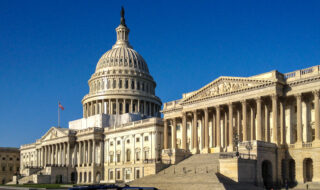April 1, 2021 Last Edit: June 5, 2025
Unemployment Insurance Tax Increase Looms in Many States
A new danger has emerged to threaten the fragile recovery of the small business economy: increased unemployment insurance (UI) taxes.
The COVID-19 pandemic hit small businesses harder than it did large ones, and while a recovery has begun, it remains uneven and fragile. But many states have devastated unemployment insurance trust funds and intend to place the burden of recovery on small business by increasing taxes. The funding that will be provided from the American Rescue Plan Act, signed into law March 2021, will create an opportunity for states to replenish their UI trust funds and provide a path of recovery for small business.
The CARES Act, which was signed into law in March 2020, provided an estimated $150 billion in direct aid to state and local governments. Almost half of all states ended up using money from the CARES Act to help their UI trust funds.
For some states, this money was well-spent. Tennessee, for example, was able to fully utilize federal funds and enter 2021 with its UI trust fund fully solvent. Without money from the CARES Act, Tennessee employers could have seen an increase their UI tax by 300%. Iowa is another state that entered 2021 solvent, thanks to $490 million in CARES Act funds.
Other states are struggling. With an allocation of $285 million in CARES Act money for its UI trust fund, Alabama averted a much larger increase but employers still face an increase of up to 77%.
Linda, an Alabama small business owner and NFIB member praised Alabama lawmakers’ decision to use CARES Act funds to avert larger UI tax hikes. She said, “When [Alabama leaders like Governor Kay Ivey] announced they were using CARES Act dollars to replenish the state’s unemployment trust fund, it was a relief that Alabama business owners would not face a 500% tax increase for unemployment taxes.”
Over fifteen states took out loans from the U.S. Department of Treasury to finance their UI programs. West Virginia, for example, dedicated over $500 million from the CARES Act to its trust fund, yet it still required a loan from the U.S. Department of Treasury.
If states are unable to repay their Treasury loans within a certain amount of time, they are required to increase unemployment insurance taxes. UI tax increases are a major burden on small businesses – especially at a time when Main Street is still getting back on its feet from the worst days of the COVID-19 pandemic and government-mandated shutdowns.
That’s why NFIB and small business owners are advocating for more action from legislators to prevent costly UI tax hikes for small business job creators. Specifically, we’re asking legislators to maximize the unrestricted federal funding delivered to states by the $1.9 trillion American Rescue Plan Act (ARPA) last month. Fortunately, several states are already moving in this direction: Hawaii owes $700 million to the federal government, and state leadership is discussing the use of federal funds to repay the debt instead of raising UI taxes.
Similarly, legislative leaders in states like Alabama, New Mexico and Louisiana have openly discussed replenishing their unemployment trust funds with federal ARPA money.
However, some states such as New York did not utilize any of the CARES Act funds for unemployment insurance costs, and the trust fund is in crisis.
NFIB is a member-driven organization advocating on behalf of small and independent businesses nationwide.
Related Articles














